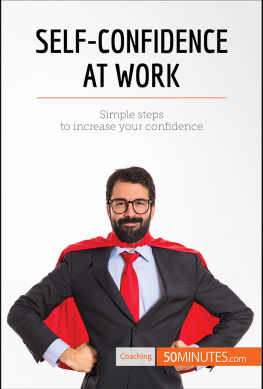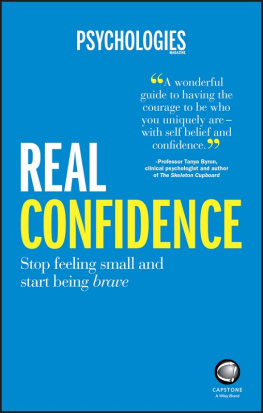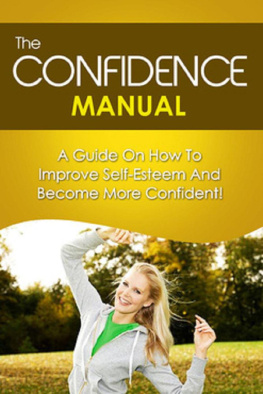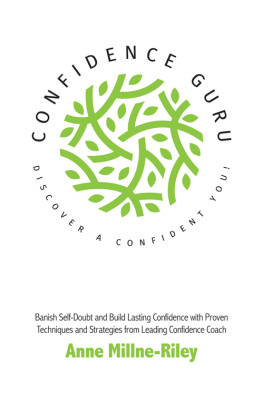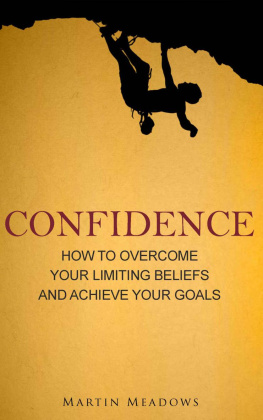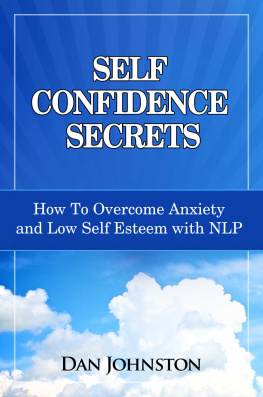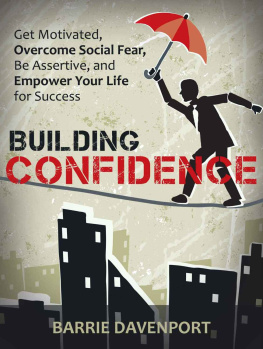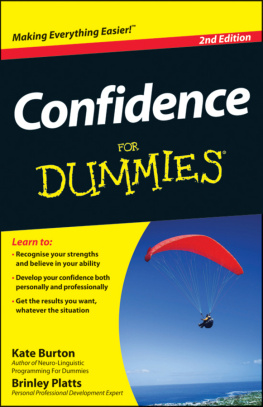There is no shortage of books or self-improvement programs on the market today, and they deal with a wide range of topics, making the self-improvement industry a thriving market. This is not a recent phenomenon for a long as there have been humans, there has been a desire to experience happiness, a sense of welling being, or a sense of certainty.
Before the advent of self-help books and seminars, there were palm readers, advice columnists, the church, counselors, and psychologist, all sought out for just one reason, to find ways to improve our sense of being. Yet will all these resources available, why is it that people continue to struggle with becoming truly happy? Why do so many people distract or chemically alter themselves so as to numb their pain?
This book offers an approach to building confidence that is a dramatic departure from traditional recommendations; it is dramatic because it focuses on a frequently unexplored question, who are we at our most fundamental level? How can we improve something when we do not know what that something is?
This book is based on Buddhism and other ancient teachings, and it offers you an opportunity not only to gain confidence, but to gain freedom and unshakeable happiness. All that is required is a desire to change your life, the openness to explore new perspectives, and the courage to venture into an under explored world, the world that lies within us all.
Lastly, though this book is about gaining confidence, the principles in this book can be applied to any aspect of your life.
Chapter 1 Lifting the veil of illusion
Imagine this, you wake up feeling well rested, and you are feeling good, until you look at the clock and realize that you overslept. Instantly, your sense of wellbeing evaporates, and you feel a sense of urgency surface from within. Realizing that you need to make-up for lost time, you rush to get ready for work.
Getting in your car, you speed off in hopes to making it to work on time. Because you are speeding, you are pulled over by a police officer and issued a traffic ticket. Now your state of being makes another shift as you experience anger.
You arrive at work and your boss catches you walking in late. To your relief, he is very understanding and tells you not to worry about it. Your sense of being takes yet another shift; you know feel relief.
At the end of the workday, you drive home. You turn on the car radio, and you start singing when you hear your favorite song come on.
Arriving home, you stop off at the mail box, only to discover that you are the recipient of a check for $500, a completely unexpected surprise. You are now jumping for joy.
Upon entering your home, you check your voice mail. A message from your romantic interest advises you that they wish to take a break from the relationship, that they need some space; you are now hurt and worried.
In this brief scenario, you experienced feeling well rested, urgency, anger, relief, the desire to sing, joy, hurt, and worry. These changes of emotional state were based on what was occurring in the environment, namely your clock, the traffic ticket, your bosss reaction, and so on. This is the relationship that most of humanity has with life, a relationship where our emotional states are triggered by the events of the given moment.
We are raised by parents and society to focus on the world outside ourselves. We learn that if we please our parents, we will get rewarded, but if we upset our parents, we will get punished. We are told to work hard and get good grades in school if we want to be successful. We learn to condone questionable behavior or go against our better judgment in order to fit in with our circle of friends, in order to feel accepted. We learn that earning a lot of money or a prestigious job equates to power and success, while a lack of money leads to a life of hardship. In short, we learn to look to the outer world to get our needs met, which then impacts our sense of self. Anxiety, fear, anger, and guilt are just a few of the feelings and emotions associated with a dependence on the outer world for getting our desires met.
While we were raised to focus on the outside world; simultaneously, we were taught to not trust our inner world. Just as with learning to focus outside ourselves starts at an early age, so does the distrust of our feelings. It could start as innocently as a toddler tries to walk, stumbles, and starts to cry.
Lovingly, the mother consoles the baby, telling it It is okay, you are alright. The toddlers feelings of the experience are not a match with message he or she is getting from its mother. While the mothers intentions were to reassure the child, the child is beginning to learn to question their experience.
Later on, grandmother and grandfather may visit the home, and mom may tell the toddler to give grandmother and grandfather a kiss. The child does not want to and keeps its distance. Mom feels embarrassed and starts to express to the child that she is not pleased with his or her response. The child, wanting to please the mom, gives in, again over riding their feelings in order to please mother.
As the child grows older the child faces an onslaught of what constitutes acceptable behavior, according to societys standards. Its frowned upon for a boy to want to learn ballet, or for a girl to want to play football. When they become parents themselves, they may feel guilty for putting their desires and wants ahead of their children.
The final result is that the typical human develops an attention that is strongly oriented toward the outside world but weakly developed for the inner world. Despite our advance brains, of which we take so much pride in as a species, our inner conditioning leads us to live an existence of a stimulus-response animal, no different than Pavlovs dog. Most of our responses are directed toward receiving the approval of others and avoiding their displeasure. Further, our sense of self becomes quantified by the world of form, be it our physical appearance, our job title, the people we know, how much money we earn, the latest fashions, the car we drive, or the opinion of others.
There is another dynamic that impacts our sense of self, which is the nature of impermanence. All expressions of life are impermanent, nothing last forever. Thoughts, feelings, and sensations arise from the depth of our being, only to fade away; relationships come and go; possessions are acquired and lost; our bodies age and become frail; water evaporates or becomes ice, seasons change, day becomes night, the cells of our body are constantly dying and being replaced; mountains erode, stars burn out, and the universe is expanding.
In summary, we have been conditioned to focus our attention on other people, events, situations, and objects while learning to distrust our feelings. Further, we have learned the importance of gaining the approval of others, while avoiding their disapproval, if we want to get what we want. Finally, the world of form, be it our thoughts, feelings, relationships, or possessions are constantly changing and in flux. Given all of this, we can now develop a better understanding of confidence and how to achieve it.
Chapter 2 Where are you setting your anchor?
From the previous chapter, we discussed that we are conditioned from early on to focus on the external world and to not trust our feelings. We also discussed that nothing in life is permanent or fixed, this is especially evident when it comes to our thoughts, feelings, and emotions. Confidence is a feeling we have when we have a sense of certainty about something.


